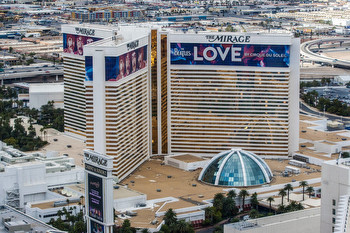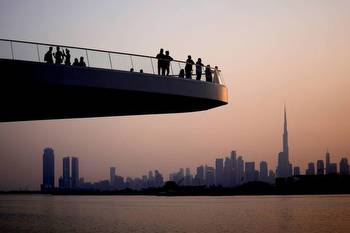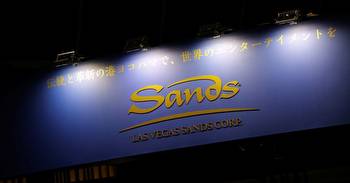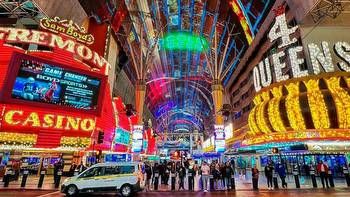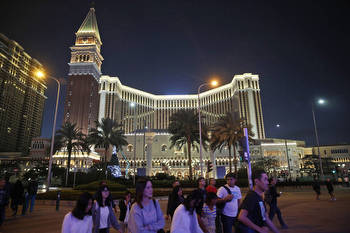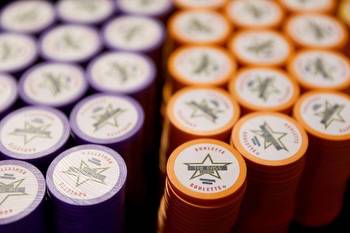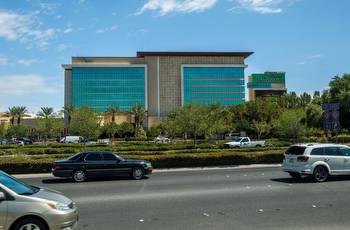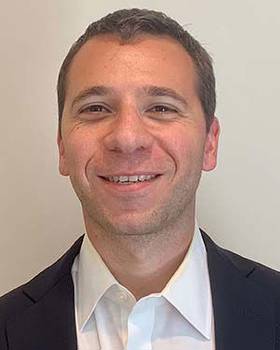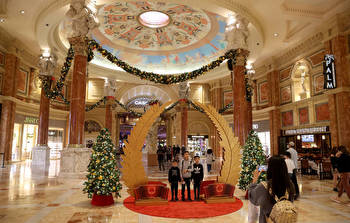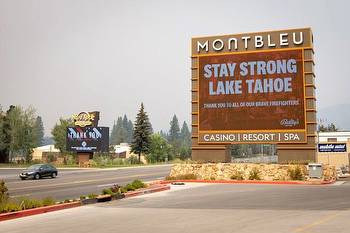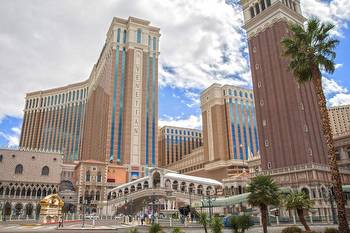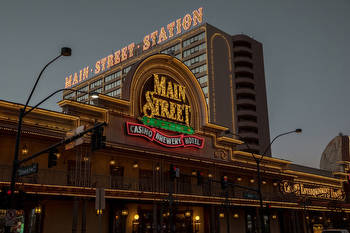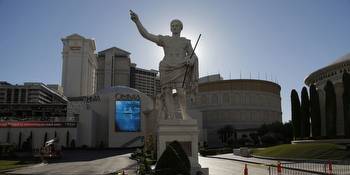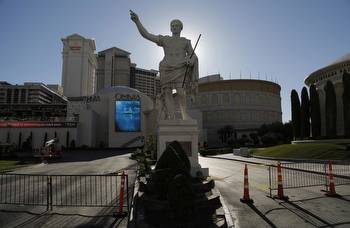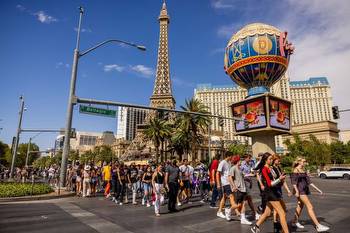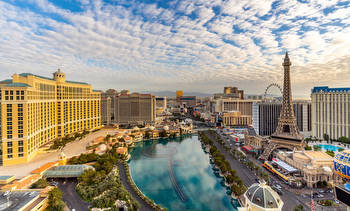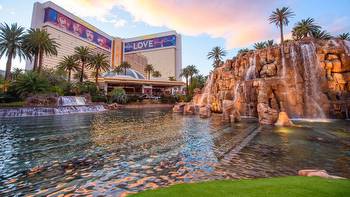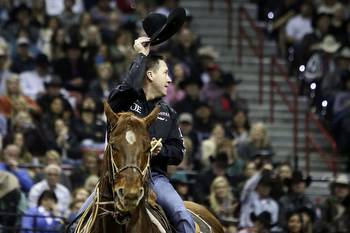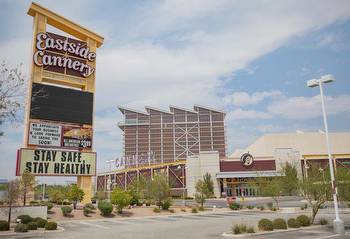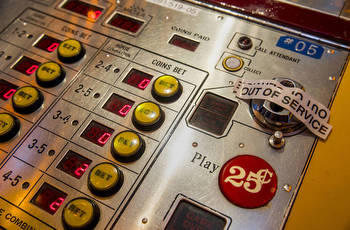Las Vegas hotel-casinos strive to gauge visitor demand

When one door closes, another opens.
Las Vegas casino operators seem to be taking that adage to heart this month.
Last week, Caesars Entertainment Corp. announced that it would reopen its fifth casino, Bally’s, this month. Meanwhile, Las Vegas Sands Corp. is set to close its Palazzo hotel tower on weekdays, limiting its available rooms for the majority of the week.
The moves have sent mixed messages on just how many rooms resorts are filling in mid-July, a little over a month since reopening. Experts say it will take time to grasp where customer demand stands — especially as Nevada’s health and safety policies continue to change — but these changes highlight what kind of visitor Las Vegas is attracting during the pandemic.
“I think demand signals are mixed, and probably will be for some time,” said Las Vegas-based Union Gaming analyst John DeCree. “Right now, Las Vegas is mostly reliant on drive-in visitation and gaming customers. … That midweek piece of the business (is) much harder to come by without big groups coming to town.”
Opposite directions
Caesars CEO Tony Rodio said in a news release Thursday that the company decided to reopen Bally’s on July 23 after seeing “solid customer interest in visiting Las Vegas this summer.”
But Saturday, Las Vegas Sands said it would no longer accept reservations on weekdays, beginning July 21, citing a “response to travel demand for the summer … to better reflect occupancy patterns.”
Wynn Resorts Ltd. declined to comment on visitor demand or whether it would be following Sands’ lead by cutting midweek hotel rooms.
Caesars spokesman Richard Broome pointed to Bally’s reopening when asked about current business volumes.
Representatives for MGM Resorts International, Boyd Gaming Corp. and Station Casinos did not respond to requests for comment.
Josh Swissman, founding partner of The Strategy Organization in Las Vegas, said shutting down portions of a property on weekdays — when visitation rates are much lower — could help operators cut costs in cleaning supplies, utilities, labor and more.
He expects more operators to follow Palazzo’s example by closing hotel towers or certain venues, such as restaurants or pools, midweek.
“It feels logical that properties will start to take steps … to help better match midweek supply to midweek demand,” he said.
Weekend vs. weekday demand
Updated visitation numbers since June 4 are not available from the Las Vegas Convention and Visitors Authority, but the speed at which casinos are reopening after the 78-day, governor-mandated closure has hinted that visitation rates are relatively steady or even growing, at least on weekends.
“Weekend traffic continues to show recovery as you see additional properties open for the regional market and limited air travel that is coming in from other parts of the country,” said Brendan Bussmann, director of government affairs for Las Vegas-based Global Market Advisors.
Virginia Valentine, president and CEO of the Nevada Resort Association, said June was an “encouraging start” to the July 4 weekend and a “step in the right direction.” The association is “cautiously optimistic” that visitation will continue to build.
“We’re pleased to see that people are willing and ready to travel, particularly from drive-in markets,” she said via email. “This continues to be a fluid situation overall as people’s travel decisions are affected by the status of the virus.”
It has yet to be seen how new state health mandates will affect weekend visitation. On June 26, masks became required in nearly all public spaces in Nevada — including casinos — unless eating or drinking. On Friday, all bars that do not serve food were required to temporarily close once again to help curb the state’s uptick in COVID-19 cases.
SunTrust Robinson Humphrey gaming analyst Barry Jonas said the new protocols continue to narrow Las Vegas’ customer base to drive-in, gaming-oriented customers, and hamper expansion to a “deeper destination customer.”
Meanwhile, Las Vegas’ convention industry, the driving force behind midweek hotel occupancy, is expected to take somewhere between 18 and 36 months to recover, well behind leisure travel’s rebound.
As Bussmann put it, “Vegas means business, and until that segment of the economy comes back, the midweek will continue to be soft.”
The Review-Journal is owned by the family of Las Vegas Sands Corp. Chairman and CEO Sheldon Adelson. Las Vegas Sands operates The Venetian and Palazzo.
bschulz@reviewjournal.com or 702-383-0233. Follow @bailey_schulz on Twitter.








